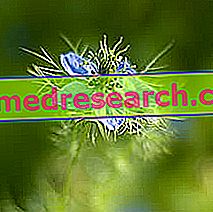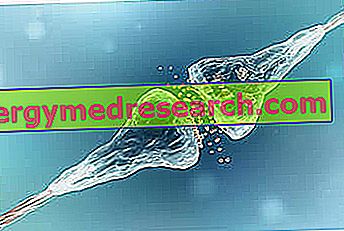
Scientific name
Nigella sativa
Family
Buttercup
Origin
Central Asia
Synonyms
Damsel or young boy
Used Parts
Drug consisting of aerial parts and seeds
Chemical constituents
- saponins;
- Alkaloids (damascenine);
- Polyphenols;
- Essential oil;
- Fatty acids.
Nigella in Herbalist: Property of the Nigella
The nigella has antipyretic and antiedematous properties, mainly due to the alkaloids; however, it is these last ones that limit its use, due to the possible onset of toxic effects.
In vitro, nigella extracts have antihistamine, anti-inflammatory and sedative CNS activity, but in vivo clinical studies that confirm their efficacy are not available.
Biological activity
As mentioned, different properties are attributed to nigella, including anti-inflammatory, antipyretic, anti-edematous, anti-histamine and sedative effects of the central nervous system. However, the use of this plant has not obtained official approval for any kind of therapeutic indication.
However, several studies have been conducted on the nigella, both in vitro and in vivo, to further investigate all the potential properties.
One of these studies showed that nigella is able to protect the liver from damage caused by certain types of drugs (such as, for example, antituberculosis drugs). The hepatoprotective activity is exercised by the plant through the inhibition of lipid peroxidation and the increase in the activity of antioxidant enzymes, therefore, is exercised through an antioxidant type action.
Another study, however, has shown that nigella seeds and the oil they extract are able to prevent the formation of ulcers and the onset of gastrointestinal damage caused by non-steroidal anti-inflammatory drugs (NSAIDs) and by anticancer drugs (as, for example, cisplatin).
In any case, despite the results obtained, in-depth clinical studies are needed before approving similar applications of nigella in the medical field.
Nigella in folk medicine and homeopathy
In folk medicine nigella is used internally for the treatment of meteorism, catarrhal diseases of the respiratory tract and dysmenorrhea; as well as being used as a remedy to promote menstrual flow.
Externally, however, traditional medicine uses nigella oil for the treatment of skin diseases such as eczema, dermatitis and burns.
In traditional Indian medicine, nigella seeds were once used as an asthma remedy.
The nigella is also used by homeopathic medicine, where it can be found in the form of oral drops, granules and mother tincture.
In this context, the plant is used in cases of respiratory failure, asthma, allergic rhinitis, cough, hay fever, flatulence, abdominal bloating and hot flashes in menopausal women.
The dose of homeopathic remedy to be taken can vary from one individual to another, also depending on the type of disorder that needs to be treated and according to the type of preparation and homeopathic dilution that you want to use.
Contraindications
Avoid taking in case of hypersensitivity to one or more components.
Pharmacological Interactions
- interactions with sedatives and antihistamines.



